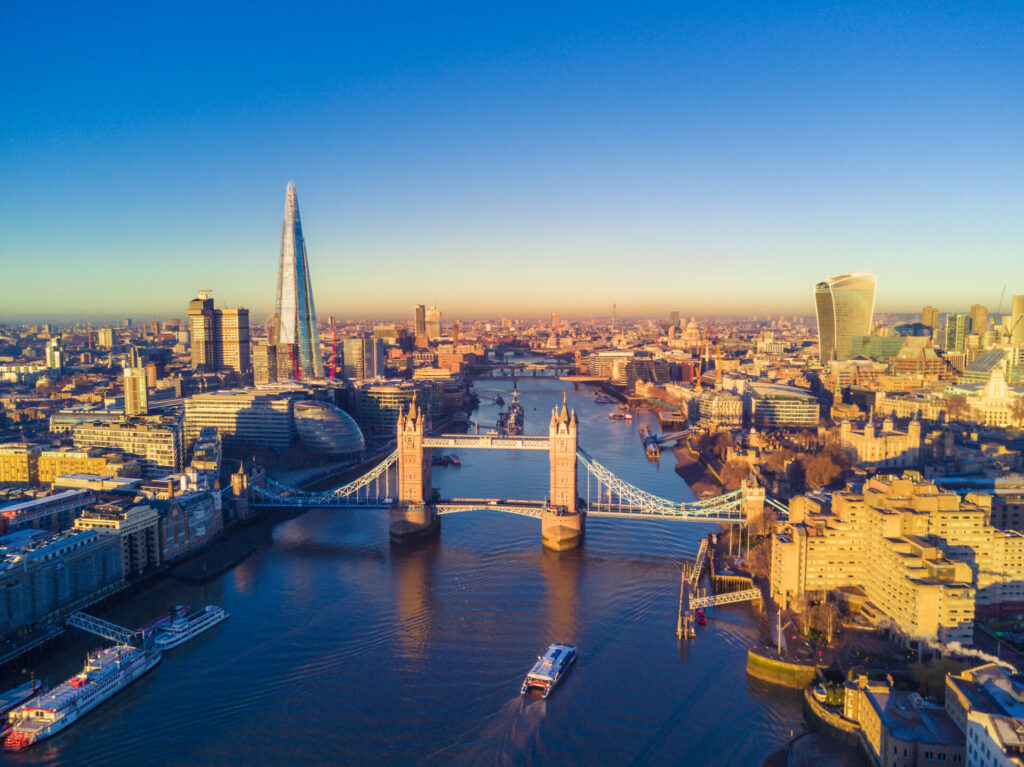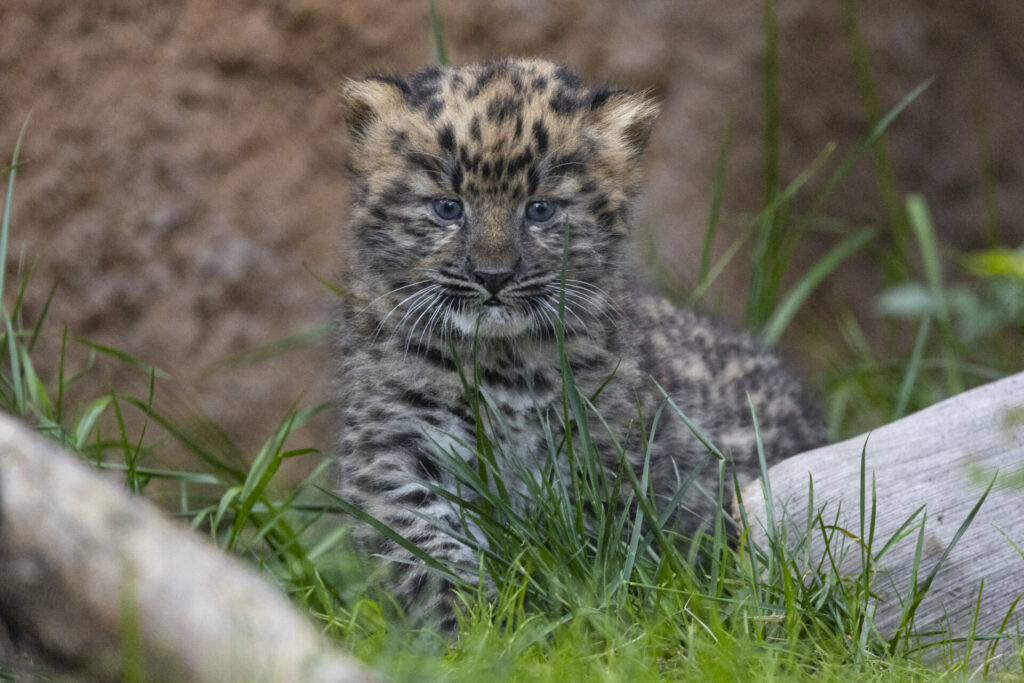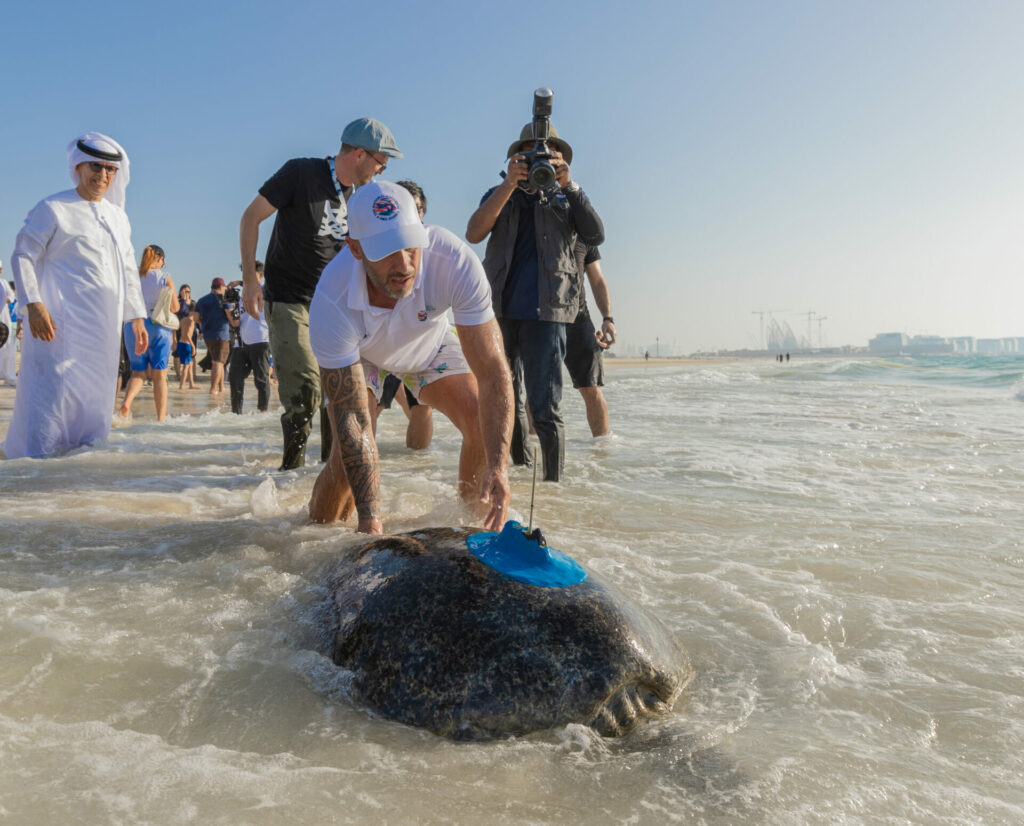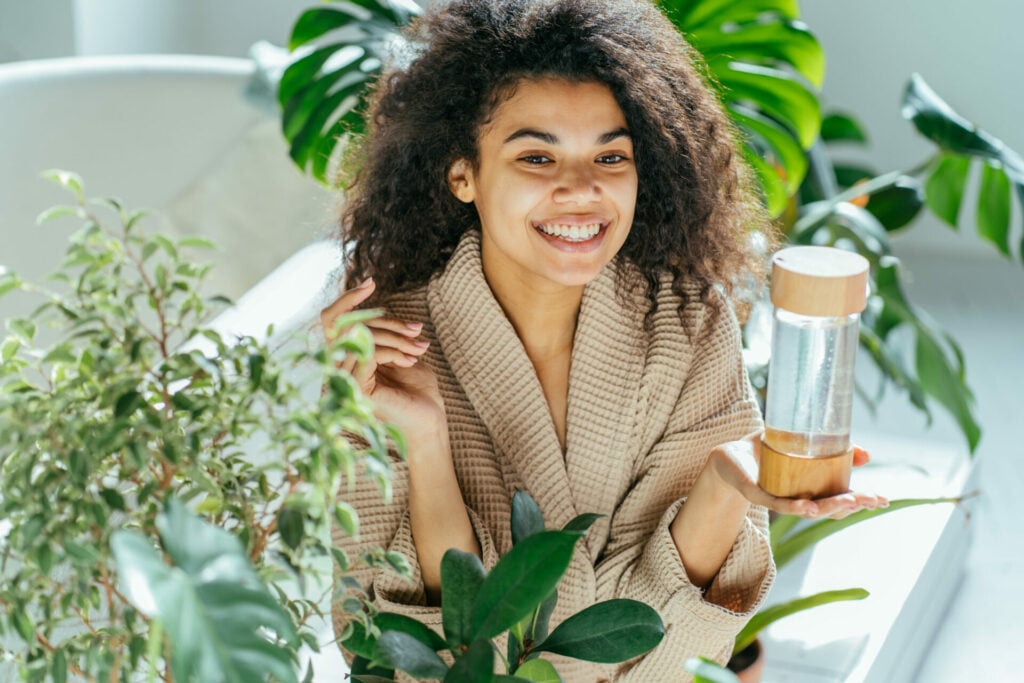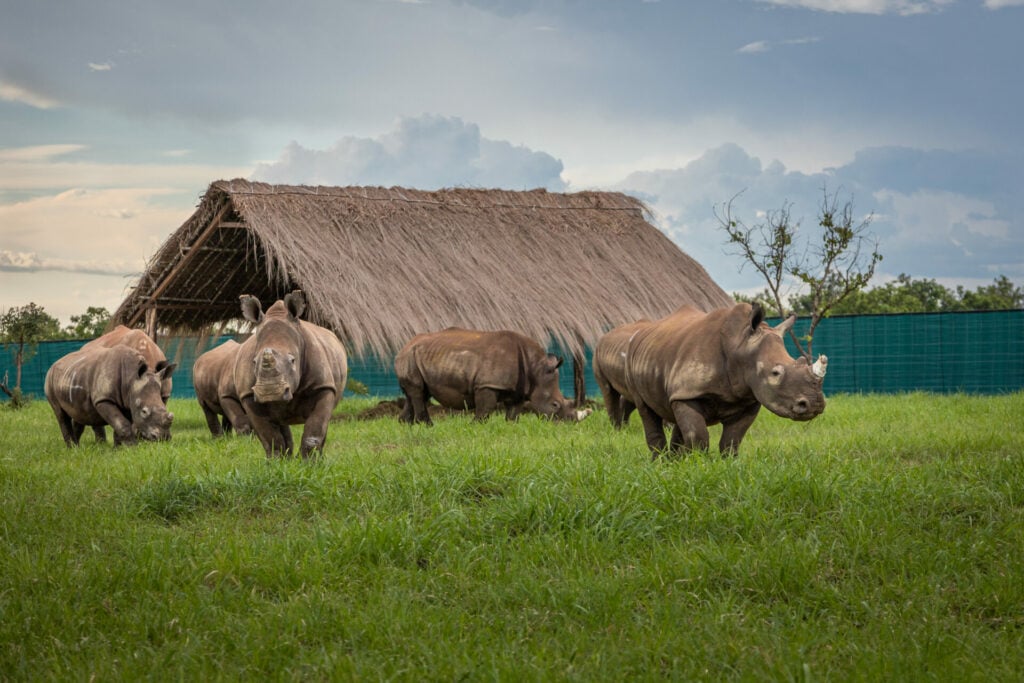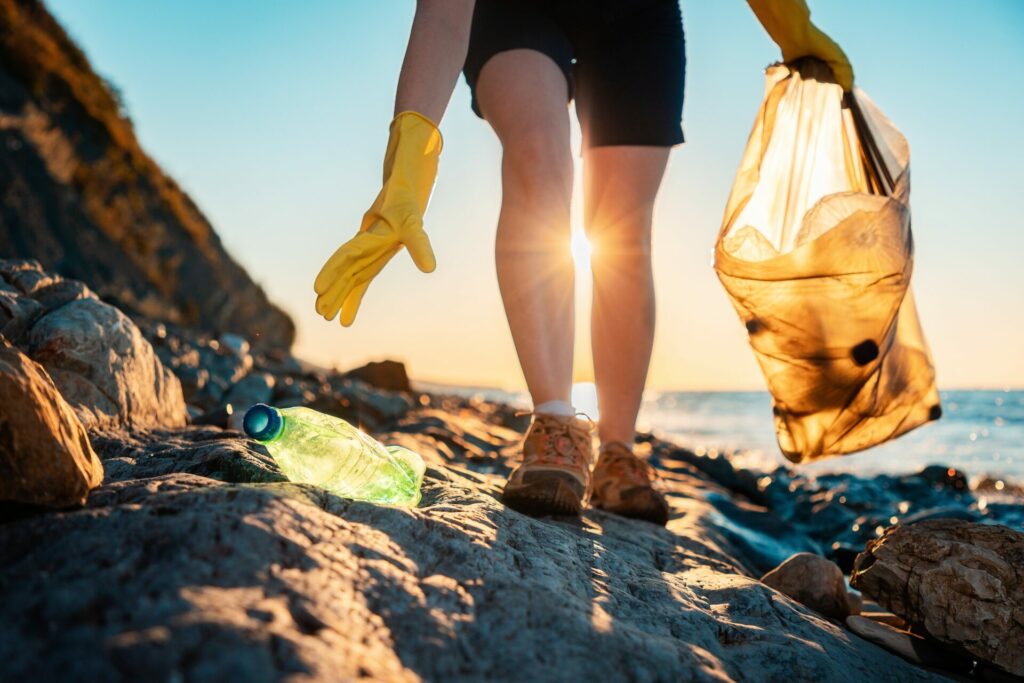With his penchant for talking to plants, wearing sustainable clothes, taking the stage at global climate events and driving the same car – which runs largely on cheese and wine – for half a century, King Charles III has sealed his credentials as a committed environmentalist and earned his title of ‘The Green King.’
Along with the pomp and pageantry and a four-tonne gold state coach, around 300 million people tuned in this weekend to watch the King wear a recycled coronation robe and be anointed with cruelty-free holy Chrism oil, made using olives rather than the traditional civet oil from the glands of small mammals and ambergris from whales’ intestines.
Visiting dignitaries were urged to take commercial flights rather than private jets – or not even come at all – and even the invites were on recycled card and featured a motif of the Green Man: a symbol of ecological awareness.
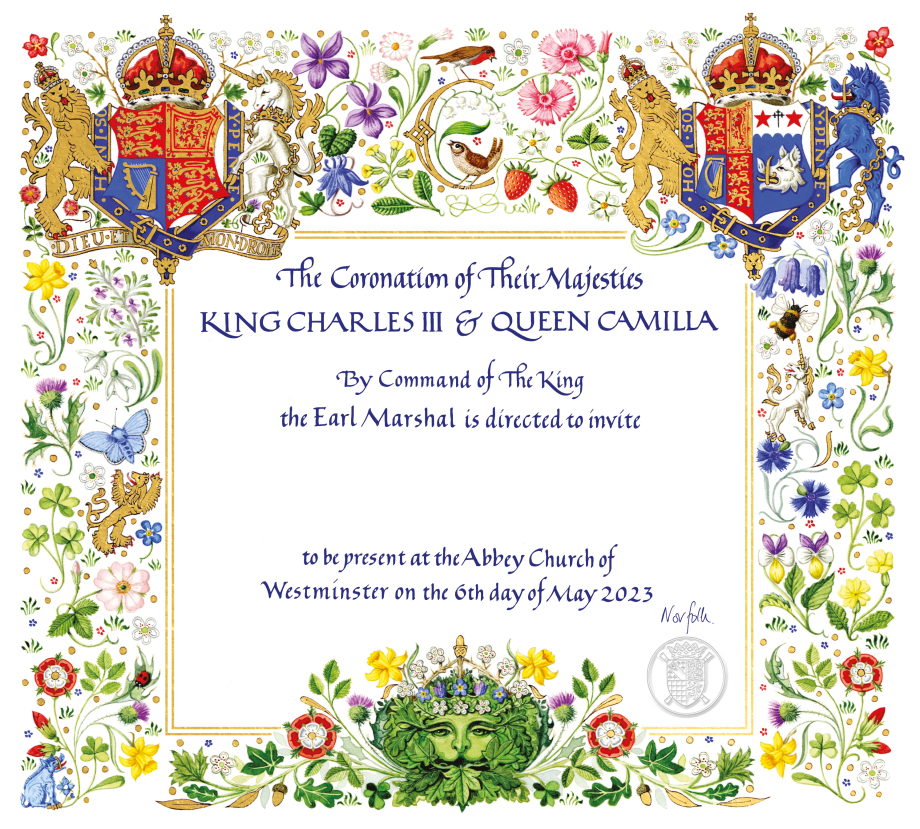
He is probably also the first monarch who has been a patron of Surfers Against Sewage, tried his hand at streaming a new Amazon channel on environmental issues and one of the few to have hung out with Greta Thunberg.
‘I would say that he possibly is the most significant environmental figure in history, considering the breadth and depth that he’s gone into over so long’
Tony Juniper, head of Natural England
‘I would say that he possibly is the most significant environmental figure in history, considering the breadth and depth that he’s gone into over so long,’ former chief of Friends of the Earth and now head of Natural England Tony Juniper, who co-authored two books with the king, told The Independent last year.
Juniper also pointed out that King Charles III would be passing the eco baton onto his son William, the new Prince of Wales, who has grown up watching his father speak out on the issues that matter to him, including climate change, biodiversity, organic farming and renewable energy.
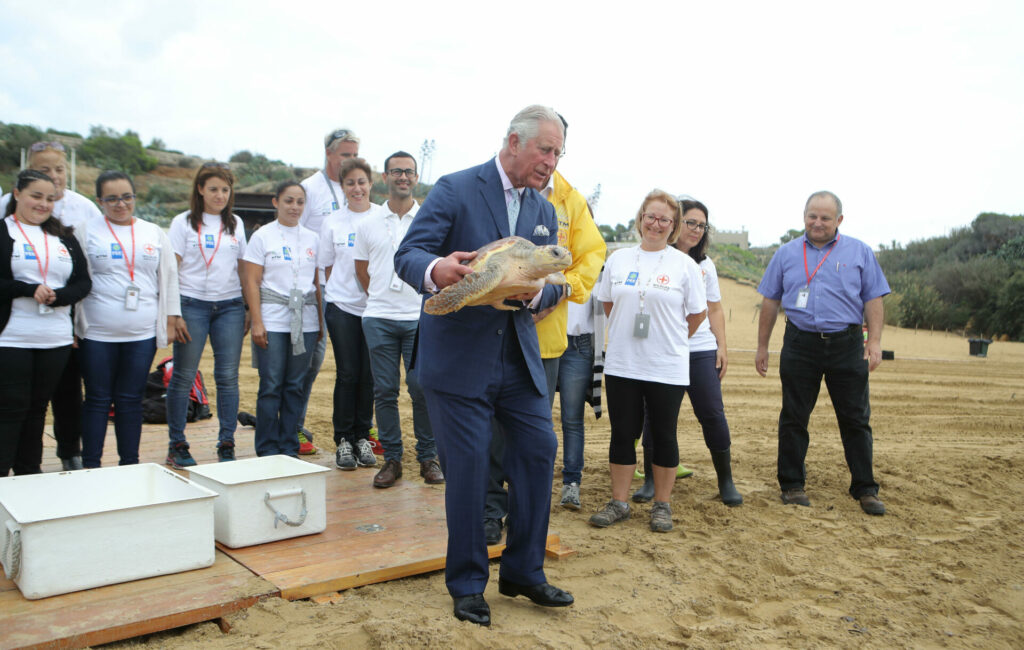
Prince William spoke in 2018 about how they used to spend many of their holidays picking up litter on the beaches of Norfolk, a habit he has passed onto his son, George, who has also been on a beach clean- up with his father.
William also created the Earthshot Prize last year, a £1 million global award designed to incentivise change and help to repair our planet over the next decade. And then earlier this year, during a special BAFTA TV award address William said: ‘Now more than ever, programme-makers have a unique opportunity to ensure climate change and sustainability remain at the forefront of our collective consciousness.’
Green Monarchy
It is clear that the King’s values have been passed down the generations and we are set to have the greenest monarchy we’ve ever had.
For the last few years, Charles has published his annual carbon footprint on the official Prince of Wales website, which includes unofficial travel, and amounted to a total of 445 tonnes in the year to March 2022. Around 90 per cent of the energy comes from renewable sources, as solar panels, biomass boilers and heat pumps.
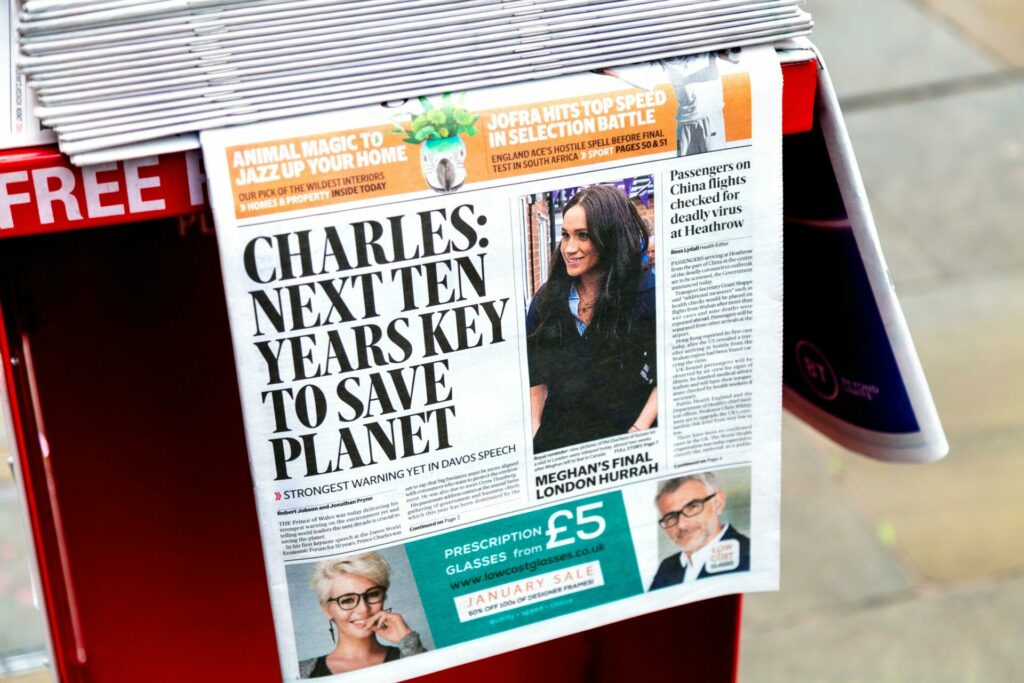
‘His Royal Highness has taken many steps personally to live in a more sustainable way,’ his website says.
The King often carries out tree planting ceremonies during engagements. He has also been president of the WWF-UK animal charity since 2011, a role he took on from his late father, Prince Philip.
In November 2020, his charity The Prince’s Foundation also supported a collection of eco-responsible clothing designed by upcoming Italian designers, in collaboration with the Yoox Net-A-Porter retail platform. But being sustainable and caring for the planet aren’t something new for this monarch.
‘Climate is a global existential challenge for the planet, and His Majesty has understood that and been engaged in that for years and years. I hope he is able to continue to be a voice on that’
King Charles was always something of a pioneer of green issues and has been using his public platform to raise awareness for over 50 years. In 1970, when the young Prince of Wales was just 21, he made a prescient speech about the threats of pollution and plastic waste.
‘When you think that each person produces roughly 2lbs of rubbish per day and there are 55 million of us on this island [Britain] using non-returnable bottles and indestructible plastic containers, it is not difficult to imagine the mountains of refuse that we shall have to deal with somehow,’ he told the Countryside Steering Committee for Wales.
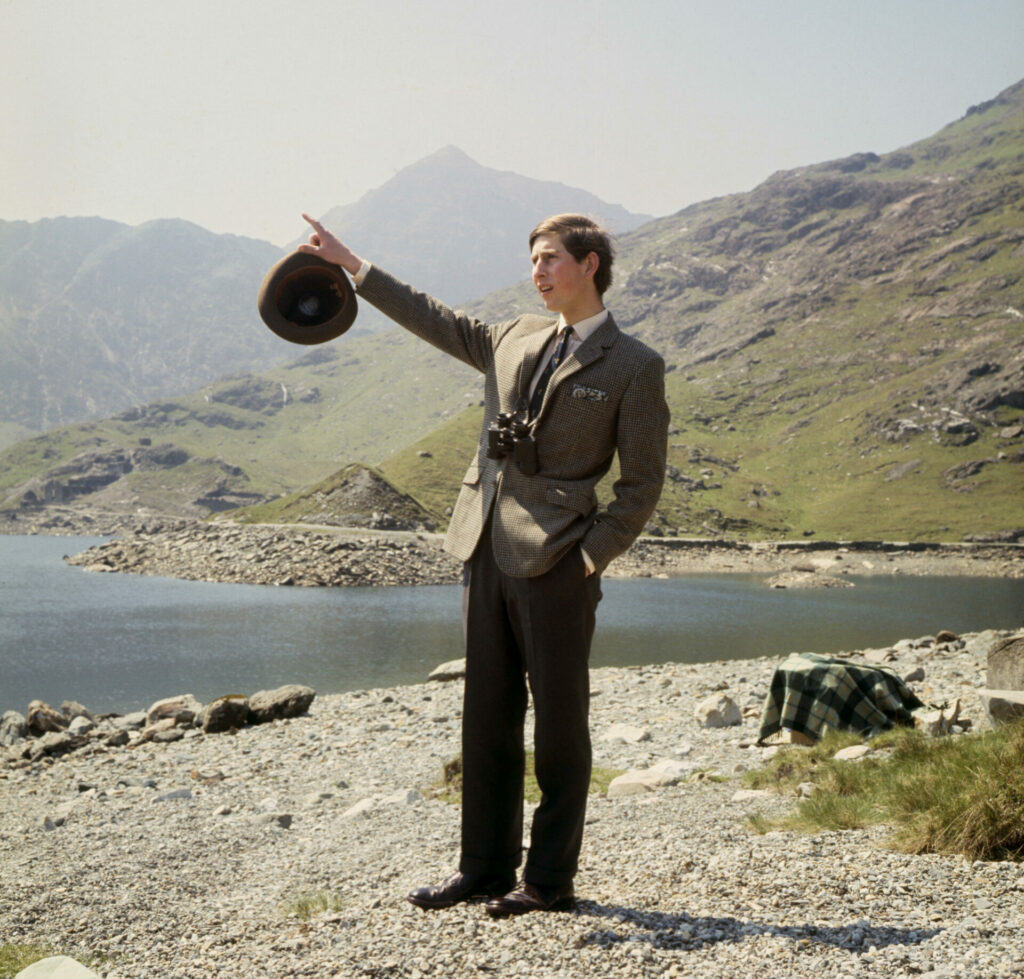
Sadly, no one really took him that seriously at the time and when he admitted to talking to his plants to make them grow in 1986, he was publicly derided. (King Charles admitted in 2020, he was regarded as quite ‘dotty’ for having such avant-garde views.) Later that year, he took over the running of the Duchy of Cornwall estate, which stretches from Devon to Kent and Carmarthenshire to Nottinghamshire.
Organic Estate
Then, in 1980, he bought Highgrove House in Gloucestershire and became a vocal advocate of organic farming. He went on to convert the 900 acre estate to an organic farm which uses natural and sustainable fertilisers, such as manure, and put 400 solar panels on the roof of the dairy. In 2006 Patrick Holden, director of the Soil Association, said the influence Charles had had on organic farming could ‘not be overestimated.’
The King also set up the Duchy Organics brand, which cultivates and sells organic produce including milk, meat and vegetables to households, restaurants, supermarkets and schools, in 1990. It has since become synonymous with ethical produce and a Waitrose staple.
The King’s passion for the environment has shown no sign of waning in recent years. In 2021 he said countries should remain on a ‘war footing’ against climate change in his speech at the opening ceremony for world climate talks COP26 in Glasgow.

He also admitted that he shares the concerns of Greta Thunberg, who he met at the conference, and other environmental activists when it comes to world leaders’ lack of climate action.
He has been a regular attendee at global climate conferences and also set up the Sustainable Markets Initiative to leverage more private sector investment in green programmes. The programme operates a charter known as The Terra Carta, which aims to provide a roadmap for businesses to move towards more sustainable markets by 2030.
United States climate envoy and former secretary of state John Kerry recently said the issue of climate change was ‘beyond politics’.
Kerry told Channel 4. ‘Climate is a global existential challenge for the planet, and His Majesty has understood that and been engaged in that for years and years. I hope he is able to continue to be a voice on that.’
As King Charles said at COP26 last year, now it the time to come together to ‘rescue this precious planet and save the threatened future of our young people.’ Maybe we finally have a monarch who can really put environmental issues on the map.







